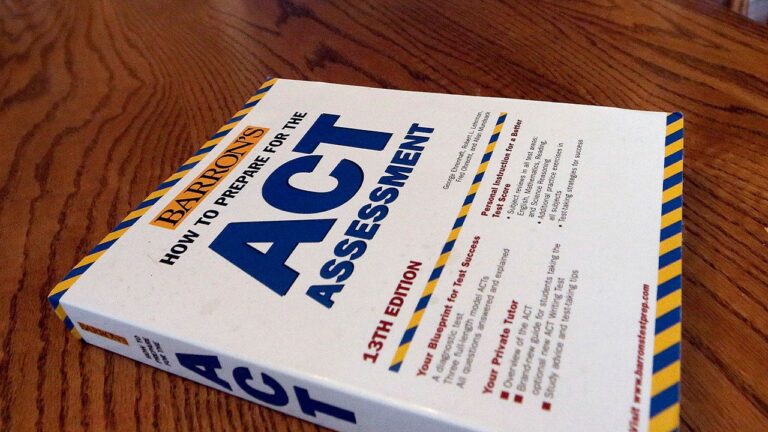ACT Test Scores Reach Lowest in Over 30 Years: Lack of College Readiness
High school students’ ACT scores have hit a three-decade low, highlighting a significant readiness gap for college-level studies, as reported by the nonprofit organization responsible for the test.
Six Years of Decline, COVID-19 Speeds It Up
Scores have been on a steady decline for six years, with the COVID-19 pandemic accelerating this downward trend. The students from the class of 2023, whose scores were unveiled recently, were in their first year of high school when the pandemic struck the United States.
Postsecondary Readiness Challenge
Janet Godwin, the CEO of the nonprofit ACT, candidly stated, “The hard truth is that we are not doing enough to ensure that graduates are truly ready for postsecondary success in college and career.”
Scores Drop, but Why?
The average ACT composite score for U.S. students is now 19.5 out of 36, a drop from last year’s 19.8. In crucial subjects like reading, science, and math, the average scores fall below the ACT’s benchmarks for success in first-year college courses. Even English, while just above the benchmark, has declined compared to last year.
Test-Optional Trend and Its Impact
Many universities, in response to criticism that standardized tests favor wealthier students and put low-income students at a disadvantage, have made these tests optional in their admissions processes. Some, like the University of California system, don’t even consider ACT or SAT scores when submitted.
Still Valuable for Course Placement
Despite the trend toward test-optional policies, Godwin emphasized that these scores remain valuable for placing students in the right college courses and helping academic advisors better support them. “In terms of college readiness, even in a test-optional environment, these kinds of objective test scores about academic readiness are incredibly important,” she noted.
Mixed Opinions from Students
Opinions among students vary. Denise Cabrera, a 17-year-old senior at Waianae High School in Hawaii, sees the value in the test but questions its necessity. She’s applying to colleges that have waived test score requirements during the pandemic, like the California Institute of Technology. Though she knows they aren’t considering scores, she doesn’t want to limit her options.
A Look at the Numbers
This year, approximately 1.4 million U.S. students took the ACT, showing an increase from the previous year. However, the numbers haven’t returned to pre-pandemic levels. Godwin believes that they may never fully recover due, in part, to test-optional admission policies.
Benchmarks for Success
Only 21% of students who took the test met the benchmarks for success in college-level courses across all subjects. Research from the nonprofit indicates that students meeting these benchmarks have a 50% chance of earning a B or better and nearly a 75% chance of earning a C or better in their corresponding college courses.

